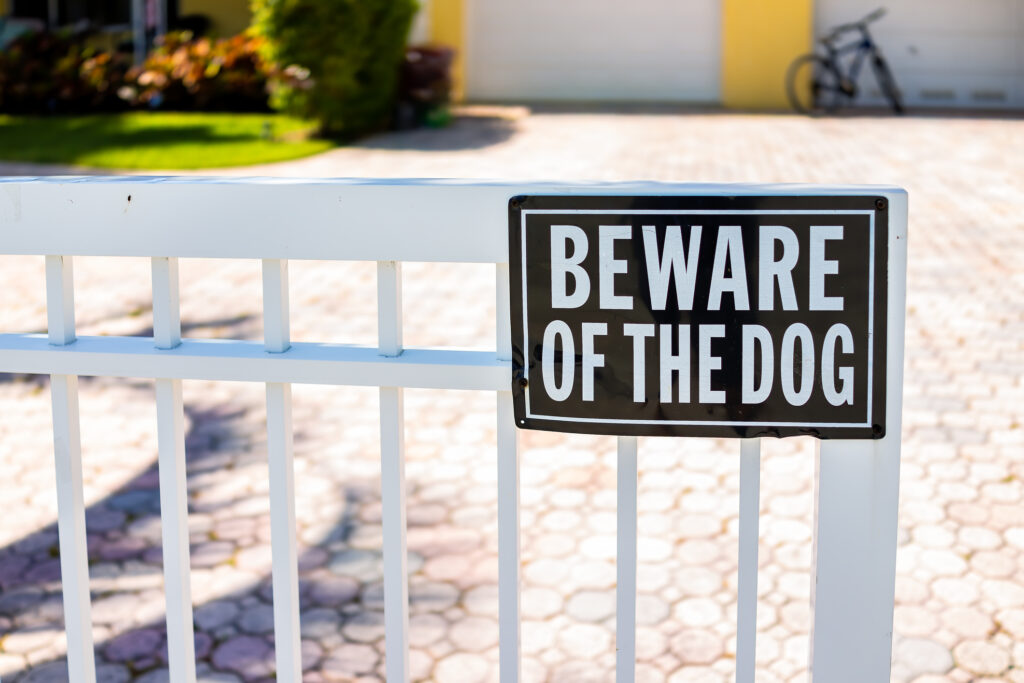
Implications for Litigation, Investigation and Insurance Evaluations.
The recent New York Appellate Court case of Flanders v. Goodfellow has sent shockwaves through the legal community, particularly within the realm of personal injury and dog bite litigation. In this landmark case, the court addressed a significant question of liability and responsibility when it comes to dog bites, ultimately ruling in favor of the plaintiff, Flanders. This case is not only a game-changer for the way dog bite lawsuits are handled, but it also signals potential shifts in homeowners’ insurance policies, as the legal landscape continues to evolve.
In Flanders v. Goodfellow, the plaintiff was bitten by the defendant’s dog, which had a history of aggression, but was not previously considered dangerous by the homeowner. The court’s decision hinged on the issue of “strict liability,” meaning that the dog owner was held liable for the bite regardless of the dog’s past behavior or the owner’s knowledge of its temperament. This departure from traditional negligence-based claims is significant because it shifts the burden onto dog owners to ensure their animals are not a danger to others, even if they have no prior history of aggressive behavior.
This ruling will likely have far-reaching consequences for how dog bite litigation is approached. Lawyers representing plaintiffs will now have a clearer path to securing compensation, as they can focus on proving ownership and the occurrence of the bite rather than the dog’s prior aggressive behavior or the owner’s negligence. Theories of liability and negligence can strengthened by using. Private Investigator to gather intelligence. Speaking to eye witnesses and establishing patterns are still very important. The ruling in Flanders v Goodfellow doesn’t negate the old criteria needed to prove vicious propensity, it gives the plaintiff the ability to use that theory or general negligence theory to proceed with a cause of action. On the other hand, defense attorneys will need to adapt their strategies, as strict liability will make it harder for dog owners to avoid responsibility based on arguments of lack of prior knowledge or the dog’s unprovoked nature. This shift towards strict liability is expected to lead to more dog bite cases being pursued and higher damages being awarded.

Another area that will be heavily impacted by this case is homeowners’ insurance. Many homeowners’ insurance policies provide coverage for dog bites, but this coverage is often conditional on certain factors, such as the breed of the dog or the history of aggression. With the Flanders v. Goodfellow ruling favoring strict liability, insurance companies may begin to rethink their policies. Insurers may increase premiums for homeowners with dogs, particularly if the dog is a breed that is considered more likely to bite or cause injury. Additionally, insurers may revise the terms of their policies to limit liability or increase exclusions for certain situations, particularly as dog bite claims become more common.
Ultimately, Flanders v. Goodfellow is a case that signals a potential shift towards more stringent accountability for dog owners. As dog bite cases increase in prevalence, both plaintiffs and defendants will need to adjust to a legal framework that emphasizes strict liability. This may lead to more aggressive litigation tactics, and as a result, homeowners will likely find themselves paying closer attention to their insurance policies, especially when it comes to coverage for dog-related incidents. With dog bite litigation becoming a more prominent area of law, it will be interesting to see how both legal professionals and the insurance industry evolve in response to the changes brought on by this case. Regardless of the evolution, it is important to use seasoned investigators to navigate the claim and help prove a theory. At Satellite we have worked over 500 dog bite cases helping plaintiff attorneys gather evidence. Please visit our website to learn more about how we can assist your firm.


